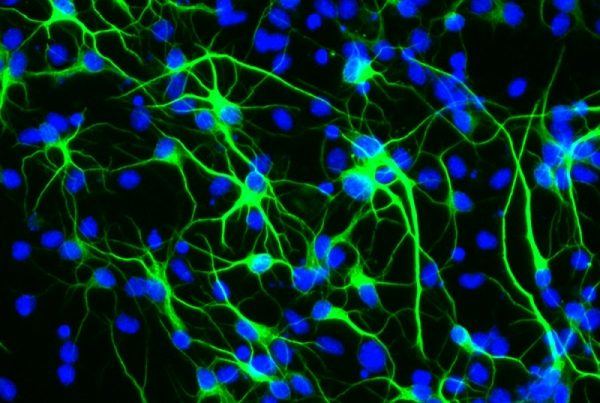A study published in JAMA Psychiatry earlier this year found a strong link between intense heat and an increase in visits to emergency centers in search of mental health treatment. With temperatures in the UK reaching a record-breaking and sweltering 40 °C this week, one has to wonder how the string of heatwaves are going to affect one’s mental health.
How do heat waves affect your mental health?
Research has found that hot weather can impact cognitive function. It impairs areas of the brain that are responsible for problem-solving, reasoning, and maintaining attention. Research has also found that hot weather can also affect your mental health in a number of ways.
1. Rising suicide rates

SpeedKingz/Shutterstock
In 2018, Stanford University published a paper that linked rising temperatures to rising suicide rates.
The study, published in Nature Climate Change and led by Stanford economist Marshall Burke, revealed that the higher temperatures that are expected to occur through 2050 are likely to cause an additional 21 000 suicides in the United States and Mexico. For every 1℃ increase in the monthly average temperature, the suicide rate was projected to go up by 0.7-2%.
“When talking about climate change, it’s often easy to think in abstractions. But the thousands of additional suicides that are likely to occur as a result of unmitigated climate change are not just a number, they represent tragic losses for families across the country.” – Marshall Burke
2. Worsened mental health conditions
Speaking to The Guardian, Prof Tahseen Jafry, Director of the Mary Robinson Centre for Climate Justice at Glasgow Caledonian University, said the following:
“With increased temperature rises, there is evidence to show that there [are] more frequent visits to hospitals for mental health, mental illnesses and behavioral and mood disorders.”
Rising temperatures can worsen symptoms for those living with mental health conditions, particularly depression, anxiety, and bipolar disorder. In fact, one 2021 study found that “elevated temperatures may trigger bipolar disorder relapses that require hospital admission, and higher exposure to sunlight may increase the risk of manic episodes.”
3. Affects effectiveness of medication
As mentioned, heatwaves can worsen the symptoms of those with mental health conditions. One of the factors behind this may be due to the effect of heatwaves on prescribed medications.

Photo by Ksenia Yakovleva on Unsplash
So how does this happen?
Dr. Laurence Wainwright, a departmental lecturer at the Smith School and precision psychiatry lab at the University of Oxford, told The Guardian certain medications can cause a rise in temperature and body temperature. Coupled with the rise in the global temperature, this can then have “all sorts of implications in terms of how a medication might work, including reducing its effectiveness.”
Additionally, Dr. Wainwright also pointed out that some medications prescribed for Bipolar Disorder may not work as effectively when individuals are dehydrated, which is likely to occur during a heatwave. Sadly, that’s not the only way that medications prescribed for mental health can have an adverse effect on an individual during a heatwave,
“There’s a class of drugs called the antipsychotics – Quetiapine is one that is commonly prescribed for Bipolar Disorder and Schizophrenia, and is sometimes used off-label for depression and insomnia,” explains Dr. Wainwright.
“This class of medication can reduce thirst, meaning that people taking it are not drinking as much water as they need. This can lead to dehydration, which may worsen symptoms and side effects – and reduce the effectiveness of medications.”
4. Affects the ability to think and reason effectively
As previously mentioned, high heat can affect your brain’s cognitive capabilities. This can lead you to make questionable decisions that may impair your health. In fact, a review of studies concluded that hot temperatures can increase aggression. The same study also concluded that a 1oC increase in average temperature may cause a 6% increase in violent crime rates, as many as 25 000 more serious and deadly assaults per year in the United States alone.
Navigating heatwaves with a mental health condition
If you have a mental health condition, it’s important to take the necessary care during a heatwave. After speaking with your doctor, be sure to check in with yourself and see how the heatwave is affecting you. If you notice that your behavior feels different, be sure to reach out to your doctor.
Additionally, make sure to get enough sleep, avoid alcohol, and continue any self-care habits that you do, such as meditation and journaling.

How can we stop the next heatwave?
It’s time to address the sweltering elephant in the room.
In case you haven’t noticed, things are getting a little hot under the collar, and it’s only going to get worse. The good news is that we can each do our part, and that includes you, Kylie Jenner (how many 3-minute flights does one person really need to take?).
With that said, here are 5 personal habits we’ve curated that you can start doing today to help.
- Put pressure on governments and businesses to reduce emissions. Also, make sure they support political parties that have clear net zero policies and strategies.
- Eat a planet-friendly diet, making sure to eat more vegetables and fruits.
- Reduce consumption of red meat as beef production increases global warming due to the gases they emit.
- Reduce your use of single-use plastic and become more energy conscious at home.
- Avoid fast fashion and instead, opt for thrift shopping.
References
Burke, M., González, F., Baylis, P. et al. Higher temperatures increase suicide rates in the United States and Mexico. Nature Clim Change 8, 723–729 (2018). https://doi.org/10.1038/s41558-018-0222-x
Montes, J.M., Serrano, C., Pascual-Sanchez, A. (2021) The influence of weather on the course of bipolar disorder: A systematic review, The European Journal of Psychiatry,
Volume 35, Issue 4, Pages 261-273, ISSN 0213-6163
Nori-Sarma, A., Sun, S., Sun, Y., Spangler, K. R., Oblath, R., Galea, S., Gradus, J. L., & Wellenius, G. A. (2022). Association Between Ambient Heat and Risk of Emergency Department Visits for Mental Health Among US Adults, 2010 to 2019. JAMA psychiatry, 79(4), 341–349. https://doi.org/10.1001/jamapsychiatry.2021.4369



![women [longevity live]](https://longevitylive.com/wp-content/uploads/2020/01/photo-of-women-walking-down-the-street-1116984-100x100.jpg)










